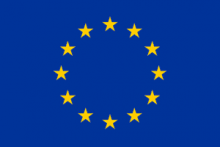27 March 2020
Designing the future of prosumer business models
The future of prosumer business models
The production of renewable energy is on the rise in Europe. A major role is reserved for ‘energy citizens’, who could generate up to 45% of the European Unions’ electricity by 2050. Individuals and collectives are no longer just consumers of energy. They produce renewable energy and, in this way, actively engage in energy markets. For example, by delivering electricity to the grid or providing energy storage. They have become prosumers.
Exploring the future of prosumer business models means exploring the tension between two extremes: will the future of prosumerism follow a community logic or a market logic? Which side of the spectrum will become dominant depends on societal conditions such as the actors involved, the project’s objectives energy market regulations, subsidies and taxation, public and private investment, and cultural issues.
Direction: community logic
The main goal of prosumerism following a community logic is to meet the energy needs of specific communities. Driven by local motives, citizens, households, public-institutions, governments and companies invest together in collectively owned and managed renewable energy systems. This type of prosumerism may also ensure an equal distribution of costs and benefits between individual members, communities, companies, and governments. Already today, there are energy cooperatives with a strong focus on local and/or regional membership which are managed in an inclusive manner. In this future, ownership and decision making are distributed, along for example the one member one vote system, and installations, such as solar panel or wind turbines, owned by many participants. Emphasis is placed on direct democracy, creating social value and inclusivity as opposed to only making profit.
Direction: market logic
In this direction, prosumer energy systems are governed largely by market actors – much in the way that liberalised energy markets are governed today: prosumerism is a commercial activity. New market entrants and incumbents drive the adoption of innovative technologies, products and services towards a market logic that is focused on low costs and choices for consumers. The main goal of prosumerism in this direction is to maximise profit and energy cost savings. Thus, large companies may optimise decentralised energy production delivering benefits for wider system stability and to network operators. Here, prosumers are viewed as consumers, who want to make a profit/savings but are not interested in governing energy systems. To a large extent, profits may be primarily captured by private utilities or companies and may be passed on to consumers.
Finding a future that works
Many futures for prosumerism may appear that lie somewhere between the extremes of community and market logic. For example, a social enterprise which combines being for profit with achieving societal goals. Or a local energy company operated in partnership between government, community and market actors. Although the market logic is currently more dominant, there is also a growing movement of more community-economy based prosumer initiatives in Europe. This will, however, differ between EU countries.
Those issues were debated during an e-workshop, organised by PROSEU project partners Leuphana University Lüneburg, University of Leeds and the Dutch Research Institute for Transitions (DRIFT - Erasmus University) on 25 March 2020. It is the first in a series of four on-line workshops.
During the workshop presentations alternated with "highlights" and interactive breakout sessions. As an example, Donal Brown introduced the diversity of prosumer business models the PROSEU project has identified. Jeff Hardy focused on the challenges for prosumer business models. And Kristian Petrick introduced the updated EU renewable energy directive (RED II) and how it could be translated into national legislation whilst retaining its transformative potential.
During the breakout sessions, participants sketched pathways towards the future of prosumer business models. This roadmapping exercise focused on four scenarios on the road to 2050: prosumerism as a local activity, a community opportunity, a social enterprise opportunity and a commercial opportunity.
You can find the programme and all presentations made during the e-workshop here.
The second of this international workshop series took place on-line on 29 April 2020 and discussed “Prosumers for energy inclusiveness: leaving no-one behind”. You can find the presentations made during this e-workshop here.
The third e-workshop will discuss "Future energy systems: Prosumer islands or a new IoT community?" and take place on 24 June 2020 using Zoom.
The fourth e-workshop, synthesising the results and roadmaps developed during the previous meetings, will take place at the end of October 2020.
Image copyright: Graphic illustration of Iris Behr's presentation on sector coupling (Designdoppel) by "Renate Pommerening"













